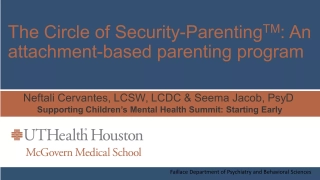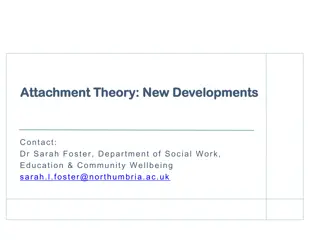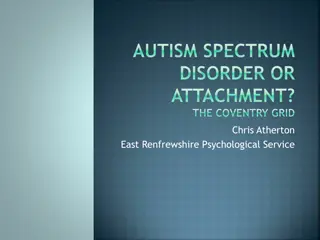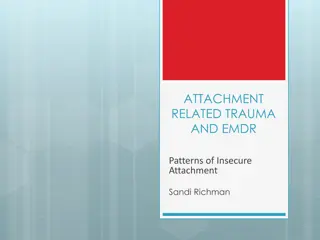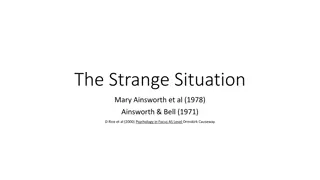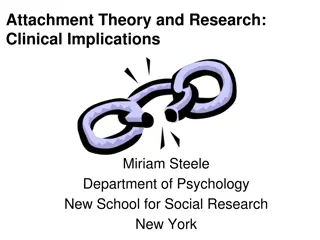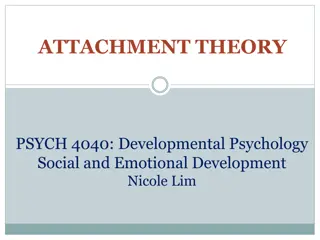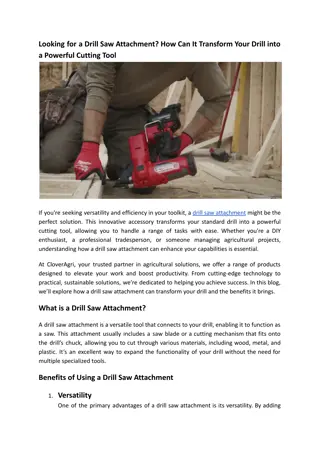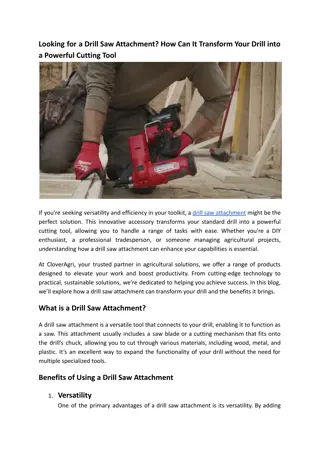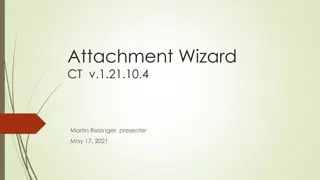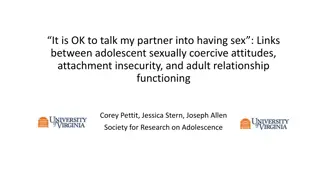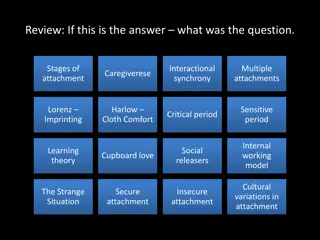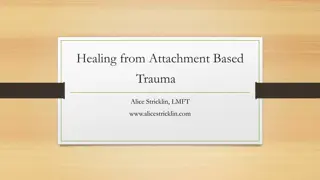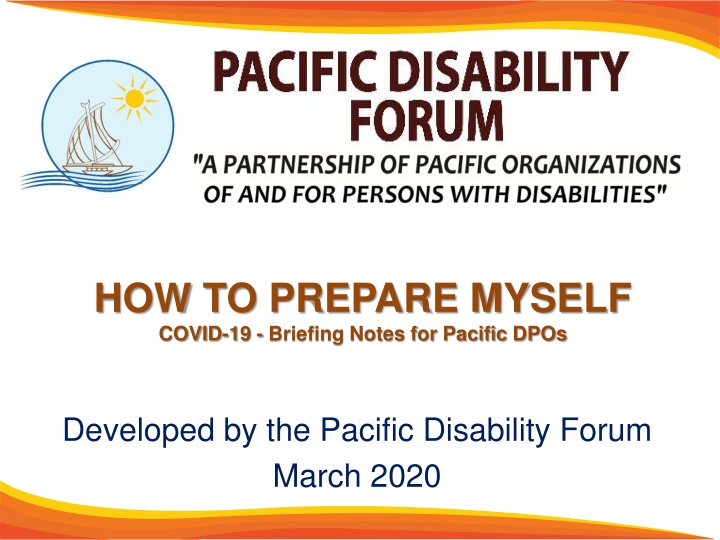
Prepare Yourself for COVID-19: Guidelines for Pacific DPOs
Ensure you have essential items at home, enough medication, and plan with carers for quarantine. Addressing specific needs like assistive devices in health services, promoting hygiene in schools, and planning for continuity of education during closures are crucial steps outlined in the briefing notes developed by the Pacific Disability Forum.
Uploaded on | 3 Views
Download Presentation

Please find below an Image/Link to download the presentation.
The content on the website is provided AS IS for your information and personal use only. It may not be sold, licensed, or shared on other websites without obtaining consent from the author. If you encounter any issues during the download, it is possible that the publisher has removed the file from their server.
You are allowed to download the files provided on this website for personal or commercial use, subject to the condition that they are used lawfully. All files are the property of their respective owners.
The content on the website is provided AS IS for your information and personal use only. It may not be sold, licensed, or shared on other websites without obtaining consent from the author.
E N D
Presentation Transcript
HOW TO PREPARE MYSELF COVID-19 - Briefing Notes for Pacific DPOs Developed by the Pacific Disability Forum March 2020
How to Prepare: Ensure food and other necessary items are available at home in case quarantining may need to be implemented Ensure enough medication is in stock in case of quarantine Discuss with carers what actions may need to be taken if you need to quarantine, including if your carer has to quarantine
Health Health and medical services may not meet disability-specific requirements, such as provision of wheelchairs and assistive devices. Hence, the need to put in place measures like home visitation or mobile clinics for those that do not have the necessary assistive devices, support services and transportation to enable them access necessary health services. In choosing locations for these mobile clinics ensure that everyone receives the information and are able to access the clinic on an equal basis
Education Schools should: Provide children with information about how to protect themselves; Promote best handwashing and hygiene practices and providing hygiene supplies; Facilitate mental health support; Help to prevent stigma and discrimination by encouraging students to be kind to each other and avoid stereotypes when talking about the virus; Be cleaning and disinfecting school buildings, especially water and sanitation facilities; and Increasing airflow and ventilation.
Education In the event of school closures, there is a need to mitigate against the possible negative impacts on children s learning and wellbeing. This means having solid plans in place to ensure the continuity of learning, including remote learning options such as online education strategies and radio broadcasts of academic content, and access to essential services for all children. These plans should also include necessary steps for the eventual safe reopening of schools.
Employment/Workplace Ensure safe and open spaces for discussions and dialogue Establish a referral network for support/counselling/trauma and for ongoing coping during the outbreak Assess the need for flexible working hours and/or to work from home Ensure that there is a plan and established good home support should a carer/person with disability and or his/her carer acquire COVID-19
Churches/Theological Schools Ensure safe and open spaces for discussions and dialogue Establish a referral network for support/counselling/trauma and for ongoing coping during the outbreak Need to relook at flexible working or school hours and/or to do assignments and tasks from home or indoors if at campus Ensure that there is a plan and established good home support should a carer/person with disability and or his/her carer acquire COVID-19
Church/ Theological Schools Elderly people and people with disabilities should also be given the option to have church fellowship and receive communion at their home Note: Need to gain support from churches and villages and provinces in regards to supporting people with psychosocial disabilities who live on the streets, communities and small islands within the Pacific.
Reference: https://www.who.int/news-room/q-a-detail/q-a-coronaviruses GiHA Asia/Pacific (March 2020) The COVID-19 Outbreak and Gender: Key Advocacy Points from Asia and the Pacific PHPC (March 2020) The COVID-19 Outbreak Protection Brief UNICEF (March 2020) Child protection emergency preparedness and response to the COVID-19 https://www.specialolympics.org/stories/news/coronavirus-outbreak- what-you-need-to-know
THANK YOU! PACIFIC DISABILITY FORUM PACIFIC DISABILITY FORUM P O Box 18458, Suva, Fiji Islands Ground Floor, Kadavu House, Victoria House, Suva, Fiji. Phone: (679) 331 2008 Fax: (679) 331 0469 Email: pdfsec@unwired.com.fj Website: www.pacificdisability.org

